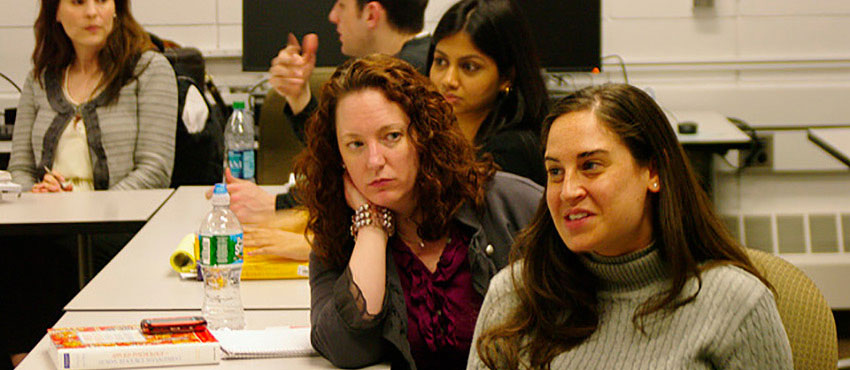
Gender and Sexuality Studies Minor
Our interdisciplinary minor in Gender and Sexuality Studies examines traditional societal roles of men and women, gender identity, and issues like human sexuality.
If you are interested in studying psychology or any field involving human relations, our program is for you. It’s also the first step if you are interested in becoming a psychologist, which requires graduate training after you complete the undergraduate major.
Bachelor of Arts
38
Minor
18
If you are interested in studying psychology and are planning a career in business, industry, education, health services, personnel work, or in any field involving human relations, the Bachelor of Arts in Psychology program is for you. It’s also the first step if you are interested in becoming a psychologist, which requires graduate training after you complete the undergraduate major.

All courses in the undergraduate curriculum incorporate the most up to date American Psychological Association learning goals for the undergraduate psychology major. These goals include: (1) Knowledge Base in Psychology, (2) Scientific Inquiry and Critical Thinking, (3) Ethical and Social Responsibility in a Diverse World, (4) Communication, and (5) Professional Development.
A total of 38 credits is required which includes a combination of core courses, electives, and courses from five domain areas; Developmental, Biological, Cognition and Learning, Personality and Individual Differences, and Social and Cultural.
You must complete 14 credits of core courses in the following sequence:
For more information, and to see a complete list of degree requirements, visit the Course Catalog.
You must complete an additional 15 credits by taking one course from each from five domain areas. Examples include:
Developmental:
Biological:
Cognition and Learning
Personality and Individual Differences
Social and Cultural
For more information, and to see a complete list of additional degree requirements, visit the Course Catalog.
Three additional psychology courses are required. They may be completed from any of the Five Domain areas above or in the Applied Psychology or Advanced Studies in Psychology categories. Examples include:
Applied Psychology:
Advanced Studies in Psychology
For more information, and to see a complete list of electives, visit the Course Catalog.
We offer a minor in psychology that complements our health or natural sciences programs, as well as degrees in art, business, education, engineering, and music. A total of 18 credits is required which includes one core course:
You also must complete 9 credits of Domain area requirements with courses such as:
Take an additional six credits of psychology coursework that is completed from any of the Five Domain areas or the courses such as:
For more information about minor requirements, see the Course Catalog.
Bachelor of Arts in Psychology students will:
Psychology, '23
I was able to shadow a school psychologist which strengthened my decision in the career path I wanted to take.
Psychology, '20
Upon graduation, Caitlin Cabral was hired as a project research assistant for Optum, a pharmacy benefit management company that is part of UnitedHealth Group. As part of a research assistantship with Psychology Professor Leonard Milling, Cabral investigated personality variables and their relationship with other factors. On a more day-to-day scale, she helped with directing research participants, distributing and collecting materials, scoring data, and onboarding new research team members.
In all honesty, the Psychology Department as a whole impacted me greatly. Even when I was most overwhelmed by my workload—or just life in general—I still felt immensely supported by a team of individuals who wanted me to succeed. My professors weren’t just people I saw in class a few times a week, but mentors who I felt community and connection with.

Our interdisciplinary minor in Gender and Sexuality Studies examines traditional societal roles of men and women, gender identity, and issues like human sexuality.

In the Bachelor of Arts in Communication program, you create advertising, public relations, and social media campaigns for real clients, all while learning how to effectively communicate with different target audiences.